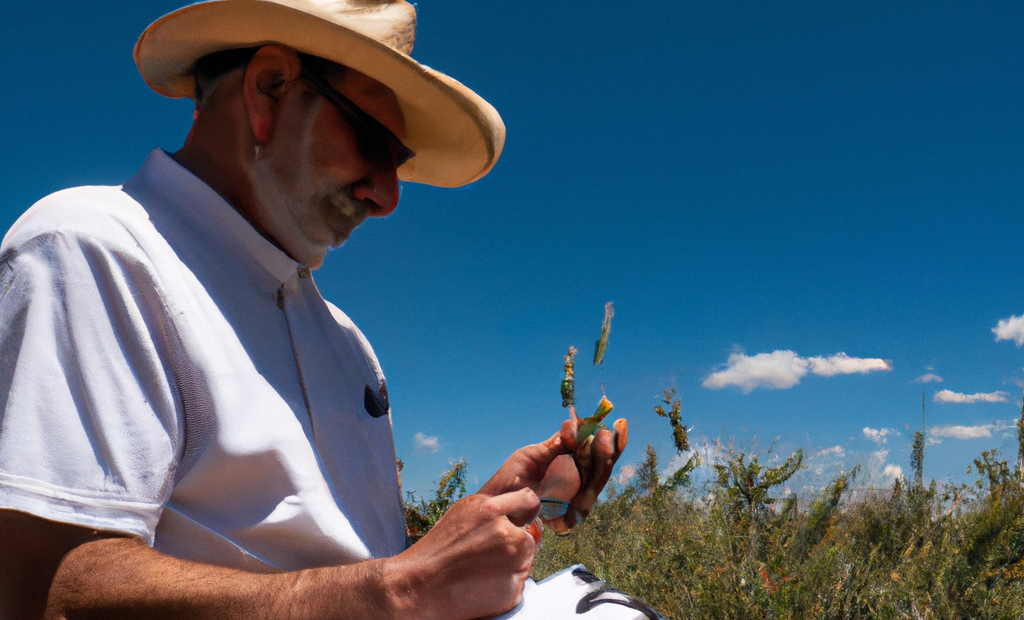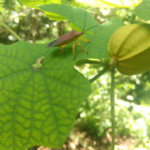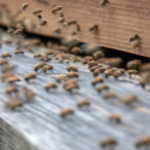This article discusses the importance of fertilizers in agriculture, highlighting the benefits and challenges of biofertilizers in organic farming. It contrasts the impacts of chemical fertilizers and biofertilizers, arguing that the latter are more sustainable and safer for the environment and human health. Pest control methods, whether chemical or biological, are also discussed, and how the choice between the two depends on the individual needs of each farmer.
Currently, the agricultural sector is in a constant search for methods and practices that are sustainable and respectful of the environment. Among the various options that have been developed, biological control and chemical control of pests and diseases stand out as two of the most relevant. Both techniques, although different, have the common objective of improving the productivity and quality of crops. However, not all options are the same or offer the same benefits and disadvantages. In this article, we will analyze both methods in depth from various perspectives: fertilizer evaluation, organic farming, biofertilizers and agricultural products in general. Our goal is to provide you with a clear and accurate view of the advantages and disadvantages that biological control and chemical control offer, so that you can make informed and sustainable decisions for your agricultural practices.
- 1. "Fertilizer evaluation: Biological Control vs. Chemical Control"
- 2. "Organic Agriculture: Benefits of Biological Control versus Chemical Control"
- 3. "Biofertilizers in Biological Control: Advantages and Disadvantages compared to Chemical Products"
- 4. "Agricultural Products: Comparison between Biological Control and Chemical Control"
1. "Fertilizer evaluation: Biological Control vs. Chemical Control"
Fertilizer evaluation is a crucial issue in current agriculture, and is particularly relevant when we talk about biological control vs. chemical control. On the one hand, chemical fertilizers have been the backbone of intensive agriculture for decades, providing essential nutrients for plant growth. However, its excessive use can lead to soil and water contamination, threatening biodiversity and human health. On the other hand, organic farming relies on biofertilizers, agricultural products that are derived from living organisms and provide nutrients to the soil in a more sustainable way. These not only improve soil fertility, but also help maintain a healthy biological balance, promoting plants' natural resistance to diseases and pests. Although they may not provide as immediate results as chemical fertilizers, biofertilizers are a more sustainable option in the long term, both for the health of the soil and the environment.
2. "Organic Agriculture: Benefits of Biological Control versus Chemical Control"
Organic farming benefits greatly from the use of biological control over chemical control. Instead of using chemical fertilizers, which can be harmful to the environment and human health, organic farming focuses on the use of biofertilizers and other agricultural products that are natural and safe for all living things. Biological control, which involves the use of living organisms to control pests and diseases, is an integral part of this approach. The benefits are multiple: not only is soil health improved and biodiversity promoted, but dependence on chemical inputs is also reduced, which can result in more sustainable and profitable agriculture in the long term.
3. "Biofertilizers in Biological Control: Advantages and Disadvantages compared to Chemical Products"
Biofertilizers are an essential pillar in biological control and organic farming, as they promote soil and plant health without the harmful effects of chemicals. They use natural microorganisms to increase the availability of nutrients in the soil, thus improving crop productivity. Its use has several advantages, such as reducing dependence on chemical fertilizers, improving soil health, preserving the environment and promoting biodiversity. However, biofertilizers also have some disadvantages. Their effectiveness can vary depending on soil and climate conditions, and they often require more time to show results compared to chemical fertilizers. Furthermore, although biofertilizers are more environmentally friendly products for agriculture, their large-scale production and use still pose challenges in terms of costs and logistics.
4. "Agricultural Products: Comparison between Biological Control and Chemical Control"
In the world of agricultural products, there are two main methods to keep pests and diseases at bay: biological control and chemical control. Chemical control is based on the use of chemical fertilizers and pesticides, which, although effective, can have harmful effects on the environment and human health. In contrast, biological control uses living organisms or their products, such as biofertilizers, to control pests. This method is an integral part of organic farming, as it is safer for the environment and human health. However, biological control may be slower and less effective against severe infestations compared to its chemical counterpart. Ultimately, the choice between these two methods will depend on the specific needs and philosophy of each farmer.
In conclusion, despite the challenges and limitations that both biological control and chemical control can present in agriculture, each method offers significant advantages that can be maximized if applied correctly. Fertilizers, both chemical and biological, play a crucial role in improving agricultural productivity. However, biological control, through the use of biofertilizers, offers ecological and sustainability benefits. Organic farming, supported by biological control, can lead to healthier and more sustainable production. Although chemical-based agricultural products can offer fast and effective results, the shift toward greener methods is essential for soil health, food security, and the well-being of the global ecosystem. As we continue to move forward, it is imperative that we find a balance between these two methods, harnessing the benefits of both to create a more sustainable and environmentally friendly farming system.


